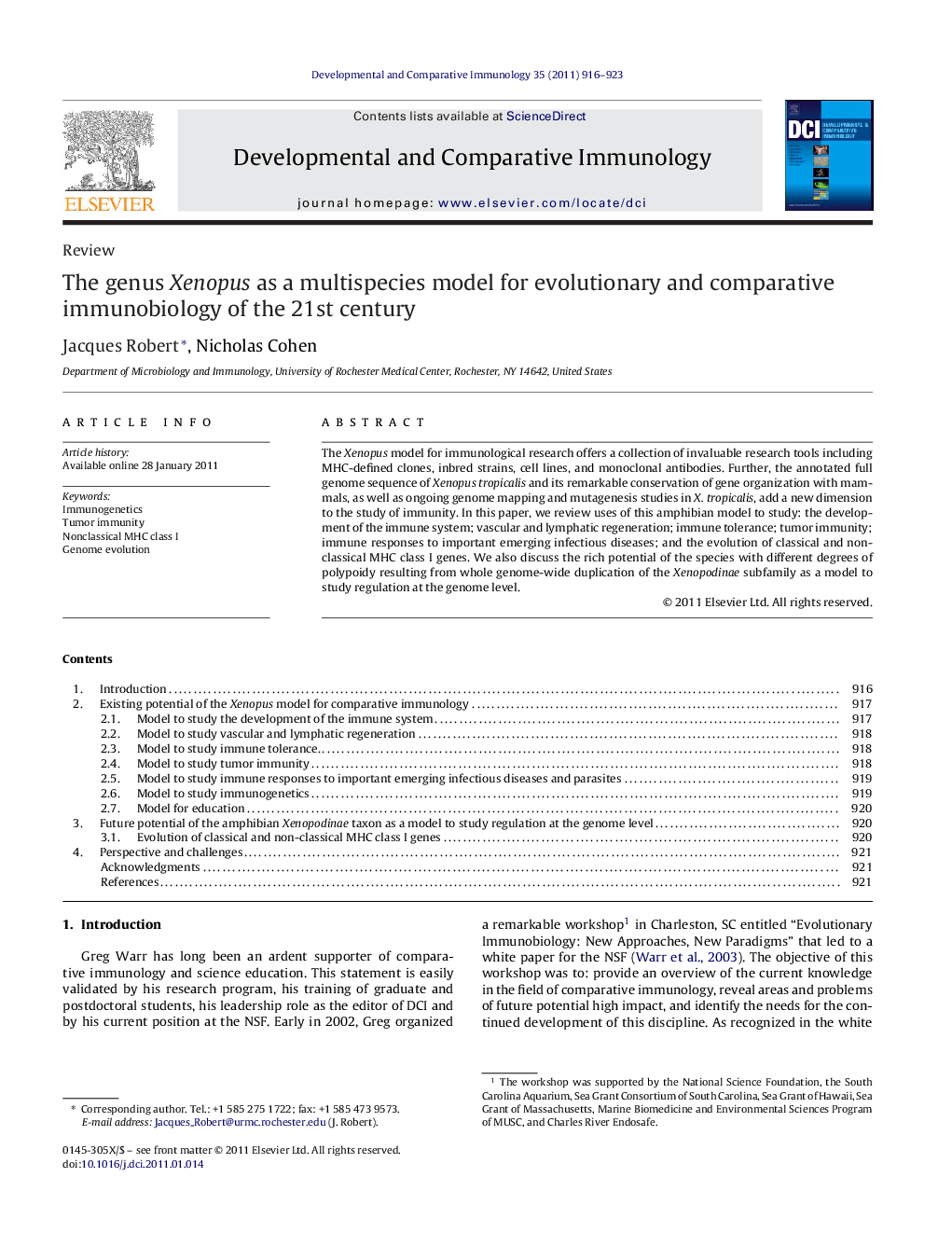| Article ID | Journal | Published Year | Pages | File Type |
|---|---|---|---|---|
| 2429714 | Developmental & Comparative Immunology | 2011 | 8 Pages |
The Xenopus model for immunological research offers a collection of invaluable research tools including MHC-defined clones, inbred strains, cell lines, and monoclonal antibodies. Further, the annotated full genome sequence of Xenopus tropicalis and its remarkable conservation of gene organization with mammals, as well as ongoing genome mapping and mutagenesis studies in X. tropicalis, add a new dimension to the study of immunity. In this paper, we review uses of this amphibian model to study: the development of the immune system; vascular and lymphatic regeneration; immune tolerance; tumor immunity; immune responses to important emerging infectious diseases; and the evolution of classical and non-classical MHC class I genes. We also discuss the rich potential of the species with different degrees of polypoidy resulting from whole genome-wide duplication of the Xenopodinae subfamily as a model to study regulation at the genome level.
